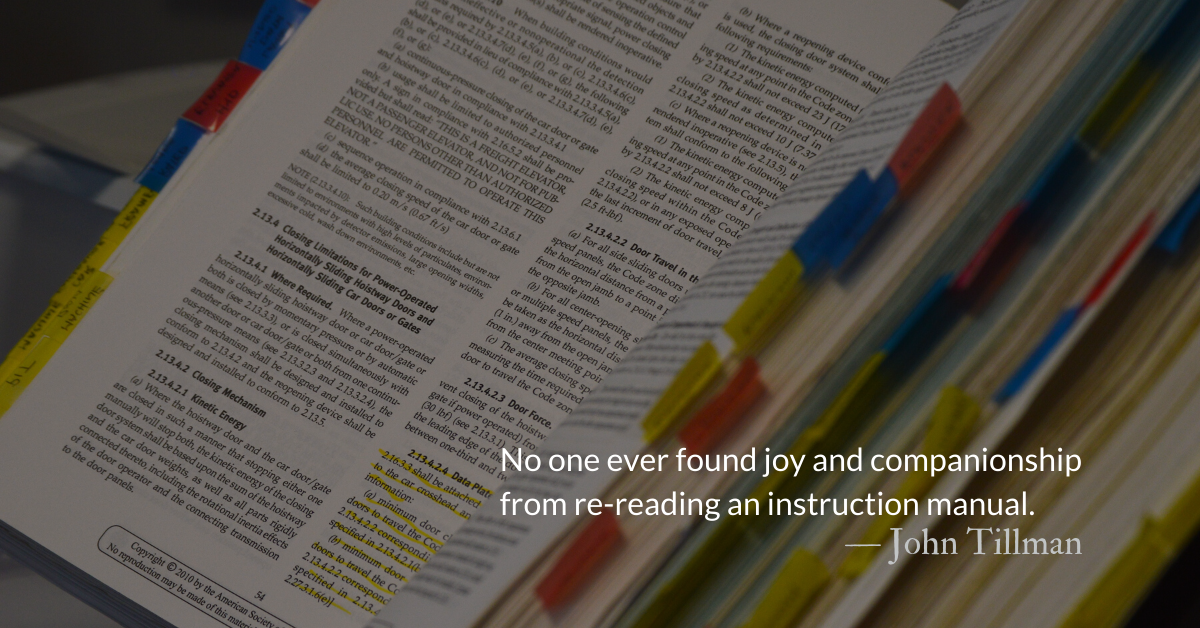Scripture Focus: Job 10.12-14
You gave me life and showed me kindness,
and in your providence watched over my spirit.
“But this is what you concealed in your heart,
and I know that this was in your mind:
If I sinned, you would be watching me
and would not let my offense go unpunished.
Reflection: How Not to Read Scripture
By John Tillman
In part of today’s passage, Job describes a God who seems deceptive. Job accuses God of using kindness to mask a secret desire to harm Job when he inevitably sins. Is this God real? Should we be ducking for cover from a God who is out to get us?
Sometimes when we read the Bible we forget who is talking and why. It is not always God talking and every phrase or group of words is not always an actionable directive or nugget of “truth” we can apply. We need to see the bigger picture.
In this passage, God is not telling us that he is out to get us. Job is sharing his emotionally charged opinion with his friends. Job is conjecturing, not speaking for God. Later, God will condemn Job’s words as “darkening his counsels” and being “words without knowledge.” (Job 38.1-3)
We also can “darken God’s counsels” (or obscure his plans, as the NIV puts it) when we speak words from the Bible without knowledge. It is an error to think of the scripture as the “words of God” instead of the “Word of God.” The Bible is God’s Word—his perfect revelation, but it is not a transcript of God’s unambiguous commands. The Bible is a work of art, not a manual.
Some may fear this lowers the Bible’s authority or lessens the miraculous spiritual nature of the Bible. The opposite is true. We rob the Word of God of its power when we think of it as merely an owner’s manual of unimaginative, dictated instructions. No analogy is perfect but the instruction manual analogy for the Bible is particularly flawed. If it were true, we should skim the Bible and toss it in the closet with the rest of the instruction manuals. This is how not to read scripture. No one ever found joy and companionship from re-reading an instruction manual.
The Bible is more akin to a pointillistic painting. When you zoom in far enough, all you might see is a few dots of red, blue, or yellow. You have to step back to see the likeness the artist has created.
This is why is it so vital that Christians read the whole Bible and read it regularly. (This is why we follow a whole-Bible reading plan.) In this way, we are equipped to view the Word of God as a work of art that reveals who God is, what God is doing, and what God expects us to do.
*View the world’s most famous pointillistic painting, “A Sunday on La Grande Jatte”, by Georges Seurat at this link.
Divine Hours Prayer: The Request for Presence
Early in the morning I cry out to you, for in your word is my trust. — Psalm 119.147
– Divine Hours prayers from The Divine Hours: Prayers for Springtime by Phyllis Tickle.
Today’s Readings
Job 10 (Listen -2:12)
Romans 14 (Listen -3:28)
Read more about How to Read Prophetic Judgment
There are many prophecies that are meant to comfort us. But the more typical function of prophecy is to cause us discomfort.
Read more about A Berean Palate
The Thessalonians were prone to being riled up by exaggeration and falsifications. Just like we are.






